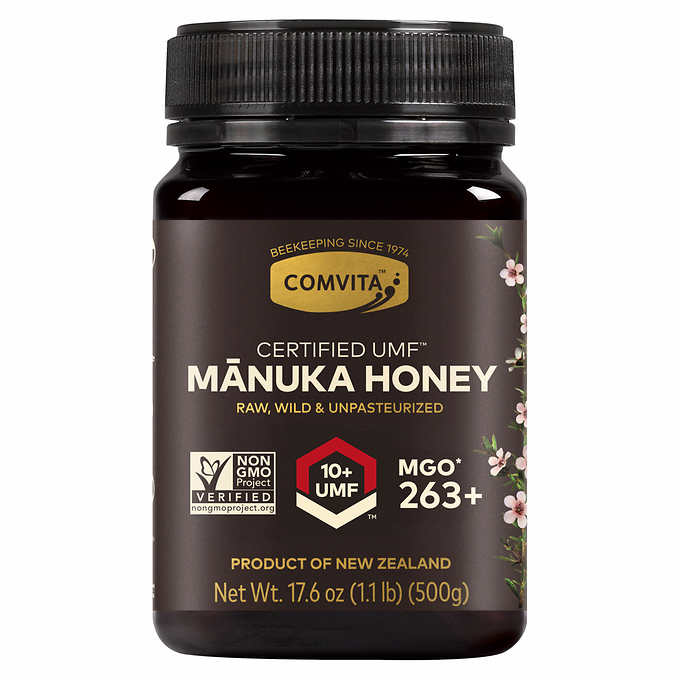
Why Manuka honey?
Manuka honey is used as a natural ointment for wounds of all kinds. It has been hailed as a go-to germ fighter in an age of resistance to conventional antibiotics. Proponents also claim that Manuka honey can treat other conditions from acne to sinus issues.
Manuka honey hasn’t been used very long as a traditional remedy. It’s the product of the New Zealand scrub plant that gives it its name. European honey bees introduced it to the area in the early 19th century. When bees pollinate from this plant, their honey is more potent than standard honey bee honey. This is because it has a higher concentration of methylglyoxal (MGO).
What are the benefits of Manuka honey?
When it comes to superfoods, raw honey is associated with health benefits. Manuka isn’t a raw honey, but it is specialized. It’s antibacterial and bacterial resistant. This means that bacteria shouldn’t be able to build up a tolerance to its antibacterial effects.
Manuka honey is said to be effective for treating everything from a sore throat to clearing up blemishes on your skin.
Other purported benefits of honey include:
- helping heal cuts and scrapes
- clearing infections
- easing stomach aches
- improving digestion
- boosting the immune system
- providing energy
What to look for when buying Manuka honey
Manuka honey is widely available online and in some health food stores. When making your purchase, it’s important to understand exactly what you’re getting — not all Manuka honey is the same.
This type of honey is often labeled as “active Manuka honey,” which can be misleading. This term refers to the antibacterial effects produced by hydrogen peroxide. These antibacterial effects are found in all types of honey.
To guarantee the unique healing properties of Manuka honey, look for a reference to “non-peroxide antibacterial activity (NPA),” or a UMF rating. The UMF rating measures the amount of NPA present in the honey.
Also stick to brands that contain MGO, the unique antibacterial factor in Manuka honey. The more MGO, the better.